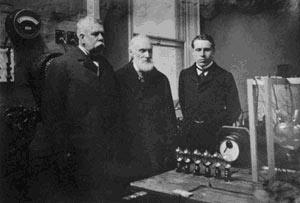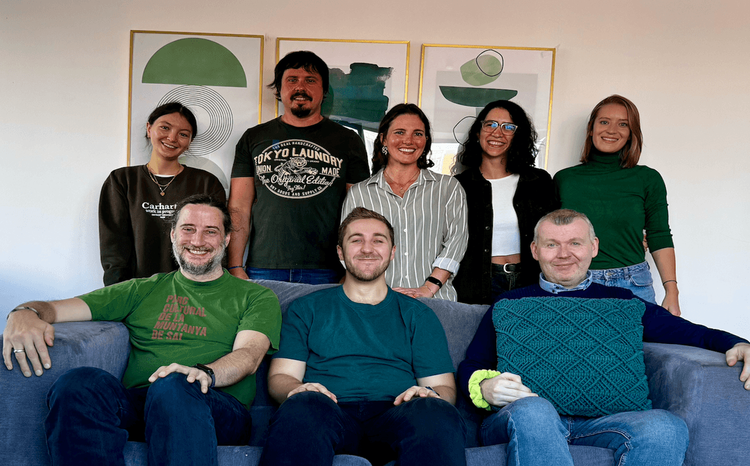Joe’s view: of a four year journey
- 30 April 2012

I am sitting on the train from Kings Cross to Newcastle for the last time as national clinical lead for IT (mental health).
It is almost exactly four years since I made the first journey the other way to take up the post. I am handwriting onto my lovely new tablet computer on which I can access my trust’s electronic patient record system, connected by 3G. And I am reflecting on the progress we have made and the lessons I have learned.
I am interrupted by my mobile ringing. It’s Vicki, my community psychiatric nurse, to tell me that one of my patients has taken an overdose; so can I review the assessment and the care plan for the future care of the patient.
I head to the toilet (it’s packed in second class so I need to find some privacy – the days of first class travel for NHS consultants are long gone).
I fire up the 3G connection and 30 seconds later I’m logging into RiO and I have good signal. I open the patient’s file and review the assessment and care plan. I think ‘we need to add cognitive behaviour therapy to the current plan’, so I amend it accordingly.
I go back to my seat feeling like superman just after he turns back into Clark Kent. It feels very much like mission accomplished from a health IT point of view.
It’s grim up north
The problem? Well, none of my kit has been provided by the National Programme for IT in the NHS for which I have been working for the last four years. It has all been provided by Northumberland Tyne and Wear NHS Trust at the trust’s expense.
This situation is echoed across the North, Midlands and East where mental health trusts have either deployed their own “interim” solutions or are still waiting for Lorenzo.
In London and the South, many mental health trusts also have successful deployments of RiO, which were funded by the programme – although some developed bespoke local solutions or bought solutions outside the programme.
At launch of the EHI CCIO Leaders Network in March, I had the chance to ask health secretary Andrew Lansley about the injustice facing NME trusts in terms of having no benefit from the programme.
I think he promised that NME trusts would be free to choose their systems – but I didn’t hear “and the money saved in negotiations with local service provider CSC will be given to NME trusts to purchase their secondary care system of choice.” SCSoC- you heard it here first.
So what now?
Well, in mental health we have formed ourselves into the National Mental Health Informatics Network (NMHIN) in order to share knowledge about systems, costs, quality usability and so forth.
We have accepted an offer from the British Computer Society to host the network, so that our hard won expertise doesn’t disappear with NHS Connecting for Health.
Even if we don’t get the fair share of money from NPfIT up north, we will at least be in a position to spend our own money wisely.
At an excellent NMHIN-organised open day at Northumberland Tyne and Wear NHS Trust, one chief information officer gave me a ‘light bulb’ moment when he said: “People keep saying we need to be a more intelligent customer.
“But to be honest, at least in mental health, we have done electronic patient records everywhere that we’ve been allowed to. We are pretty savvy customers. What we need are better informed system suppliers.”
The challenge facing us in mental health IT is; how do we best inform the supplier community? Can NMHIN meet with supplier to talk about the mental health EPR of the future?
Lessons from History

One of my key, surprise realisations on joining NPfIT was that the NHS is not a national service. It is many, increasingly independent, organisations.
In an attempt to understand better how new technologies develop I started to look for ideas from previous, successful, mass technology adoptions.
The situation is analogous to the electricity industry 100 years ago. My hometown, Newcastle, was the centre of development of the electricity industry.
Local boy Charles Merz (the younger man pictured above with Westinghaus and Lord Kelvin) opened one of the world’s first power stations. Although he is largely a forgotten figure now, it was he who realised that the industry wouldn’t really flourish until the industry agreed on a standard voltage and frequency.
It took Merz 20 years to get agreement on 240Volts and 50Hertz. The establishment of the National Grid required the authority of leglislation and the establishment of an electricity board.
Tragically, Merz didn’t live to see the post war boom in domestic electrical appliance adoption because he was killed by German bombing during the blitz in 1940.
Where is our electricity board?
One of the issues which dogged my time at NPfIT was the question of authority. We heard talk of “ruthless standardisation” but in effect never established a national authority to set standards for NHS informatics.
Again, the framework for thinking about these issues has been available for a hundred years. Max Weber, a founding father of modern sociology wrote on the subject of authority a hundred years ago. There are different kinds of authority:
Structural authority- I am your boss so I can tell you what to do.
Financial authority – I am paying the bill so I can tell you what to do.
Sapiential authority – I have special knowledge (like a royal medical college) so I can tell you what to do.
Unfortunately, these kinds of authority needed to come together to deliver the highest ambitions of the national programme but in effect remained siloed.
Toward the end of my time in NPfIT, a group of clinical leaders came together in the shape of a joint working group that produced a report looking at the need to establish an authority to do what Charles Merz did for the National Grid.
The chief recommendation of the group was the establishment of The Professional Records Standards Development Board.
I hope this report doesn’t get lost in the NHS reforms and the dismantling of NPfIT. It has not yet been determined who will set the world’s health IT standards, but whoever wins that race will reap considerable reward in terms of business.
The UK used to be good at public investment in early development of standards; whether timekeeping for the railways, longitude and latitude or standardised electricity. Will the long awaited new NHS information strategy be bold enough to throw adequate money at national IT standards? I hope so.
My train is pulling into Newcastle Central Station on the standard rail track which brought Lord Kelvin and Thomas Westinghaus to visit Charles Merz. Hopefully, I will live to see information flowing through an NHS National Information Grid.
About the author: Joe McDonald is a practising NHS consultant psychiatrist. Over the past five years he has been an NHS trust medical director and national clinical lead for IT at NHS Connecting for Health – a stint that included 18 months as medical director of the Lorenzo delivery team!
His experiences in the National Programme for IT in the NHS have left him with a passion for usability and "end user knowledge networks.” He is the founding chairman of the National Mental Health Informatics Network. Motto: we don’t get fooled again. Follow him on twitter @CompareSoftware




